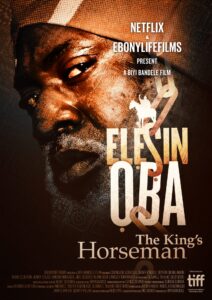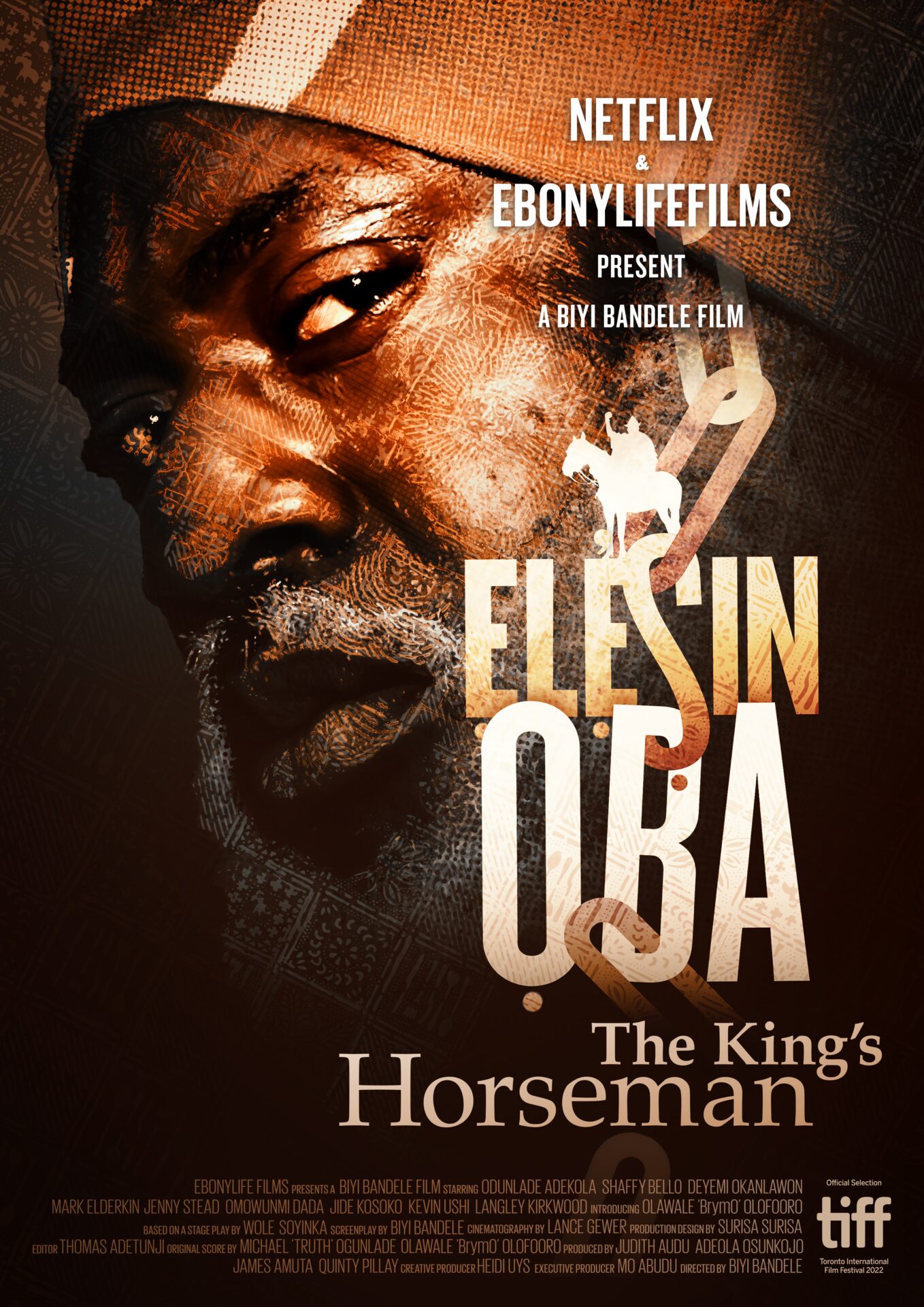
Elesin Oba: The King’s Horseman is a poignant Nigerian drama that brings Wole Soyinka’s renowned play, Death and the King’s Horseman, to life. Directed by the late Biyi Bandele, the film premiered at the Toronto International Film Festival (TIFF) before its theatrical release in Nigerian cinemas and its global debut.
Set in colonial Nigeria, the film centers on Elesin Oba (played by Odunlade Adekola), a royal horseman bound by cultural duty to commit ritual suicide following the death of the king. This act is essential to maintaining cosmic harmony and ensuring the community’s spiritual and cultural continuity. However, Elesin’s sacred mission is disrupted when British colonial authorities intervene, viewing the ritual as barbaric and unlawful. This interference leads to a tragic unraveling of events, exposing the devastating consequences of colonial imposition on indigenous traditions.
The movie’s themes resonate deeply, addressing the conflicts between tradition and modernity, duty and personal desires, and the profound effects of colonialism on African cultural identity. Through its richly woven narrative, it examines the sacrifices required for communal harmony and the spiritual dimensions of Yoruba cosmology.
The cast includes a stellar ensemble of actors: Shaffy Bello, Deyemi Okanlawon, Omowunmi Dada, and Mark Elderkin, each delivering compelling performances. Odunlade Adekola’s portrayal of Elesin is particularly notable for capturing the character’s internal struggle and tragic flaws. The film also showcases Bandele’s deep appreciation for Yoruba traditions through its evocative visuals, intricate costumes, and vibrant traditional music, immersing viewers in the cultural richness of the setting.
Critically acclaimed for its artistic execution and historical depth, Elesin Oba: The King’s Horseman stands out as a significant contribution to African cinema. It highlights the enduring power of Wole Soyinka’s work while adapting it for a contemporary audience. The film’s exploration of colonial-era dynamics, coupled with its celebration of Yoruba heritage, underscores the importance of preserving and honoring indigenous narratives amidst global influences.
This film not only cements Biyi Bandele’s legacy as a visionary filmmaker but also elevates the global recognition of Nollywood’s ability to tackle complex, culturally resonant stories with artistry and depth.




